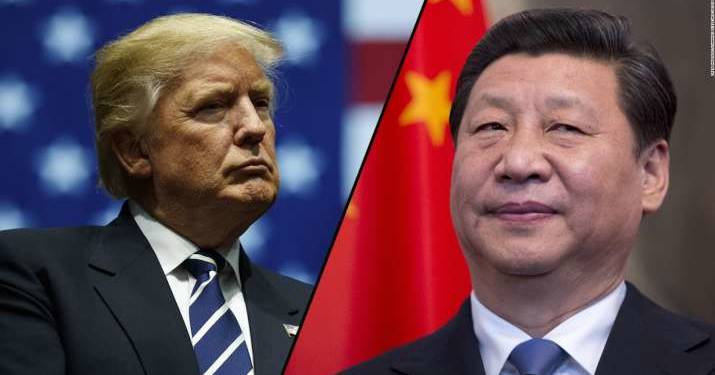The Coronavirus pandemic has emerged as a shock for industries across the world, and Mexican and Colombian drug cartels are no exception. These drug cartels have shifted from plant-based drugs like heroin and marijuana to even more lethal synthetic drugs like Fentanyl and methamphetamine.
China is the biggest source for the precursors and raw materials for these drug cartels that smuggle these synthetic drugs into the United States. The Pandemic created a supply issue for the cartels as China went into lockdown early this year. But China has opened up now and so has the source of raw materials for these lethal drugs.
It is true that Fentanyl finds its way into the US via Mexican or Colombian drug cartels. But the lethal substance also reaches the United States directly from China. The drug is also known as China girl and China town, among many other street names. It produces temporary feelings of euphoria followed by nausea, fainting seizures and death.
The drug is 100 times more lethal than morphine and 50 times more potent than heroin.
In 2017 alone, Fentanyl overdose killed 71,500 Americans. And now the United States is facing the same mischief all over again. US customs officials have reportedly seized a whopping 530 Pounds of illicit narcotics and other controlled substances which were being smuggled into the US from China. The seized substances had a street value of more than 2 million US dollars.
CBP Officers in Cincinnati made history today. They announced a seizure from May 11 that yielded more than 530 pounds of synthetic drugs and controlled substances. This is the largest synthetic seizure in the Port of Cincinnati’s historyhttps://t.co/8u13ru0KLE pic.twitter.com/fcE2oQO31H
— CBP Chicago (@CBPChicago) June 26, 2020
The seizure also contains 192 Pounds of substances that are known precursors for making Fentanyl. The Fentanyl supply into the United States is booming once again after a small hiatus during the COVID-19 Pandemic.
Cincinnati Port Director Richard Gillespie said, “This is the largest synthetic seizure in the history of our port.”
Not just drugs and controlled substances, assault weapon parts coming from China have also been intercepted by American customs officials. CBP tweeted, “10K assault weapons parts seized—CBP officers in Louisville recently intercepted over 10K assault weapons parts arriving from China in a shipment manifested as “100 steel pin samples”.”
10K assault weapons parts seized—CBP officers in Louisville recently intercepted over 10K assault weapons parts arriving from China in a shipment manifested as "100 steel pin samples." Learn more via @CBPChicago: https://t.co/KhqaSdoxFn pic.twitter.com/eBrCXpSLyB
— CBP (@CBP) June 28, 2020
Illegal weapons coming from China is almost as big an issue for the US as Chinese drug supplies. Last year, it was reported that American authorities were apprehensive of thousands of machine-gun conversion devices getting illegally imported into the US from China.
Later last year, the US CBP also intercepted nearly 53,000 sights, stocks and other gun parts that were being imported from China illegally.
US Customs and Border Protection (CBP) officials have been occupied in trying to intercept the inflow of Fentanyl, which has increased consistently over the past few years.
Till 2015, the CBP did not track the quantity of Fentanyl that it intercepted. But when it actually started recording the numbers, it was in for a huge shock. In 2016, a mammoth 459 Pounds of Fentanyl seizures were made. A year later, the number of seizures went up to 1,296 Pounds.
There are multiple routes of Fentanyl supply into the United States. One of them is, of course, through mail. In 2017, Frank Russo, Port Director for US Customs and Border Protection said, “They’ll try anything. We see the Fentanyl coming in toys, we see it coming in food products. You name it and they’ll try to use it.”
Intercepting and checking for Fentanyl is in itself a challenge. Inhaling just two milligrams of the lethal drug can be deadly.
But mail is not the only route. The drug is also smuggled through the southern border by Mexican drug cartels. James Hunt, Special Agent in charge of the US Drug Enforcement Administration (DEA) New York field division feels it is virtually impossible to plug the flow of Fentanyl. He said, “The southwest border of the United States is porous.”
Hunt added, “There’s thousands of miles of border. Thousands of trucks stop every day at the border. There’s millions and millions of parcels coming into the country every day, you can’t search them all. And traffickers know that.”
In 2017, the DEA seized as much as 193 kilograms of Fentanyl in New York. This is enough to kill the city’s population 11 times over.
Meanwhile, Beijing continues to sidestep the menace of narcotics and raw materials for lethal drugs leaving its boundaries for the US. In December 2018, Chinese President Xi Jinping had told the US President Donald Trump that he would crackdown on Fentanyl production within China. Beijing had made this promise during the G-20 Summit in Argentina.
But as we can see not much has changed. In August last year, Trump tweeted, “My friend President Xi said that he would stop the sale of Fentanyl to the United States – this never happened, and many Americans continue to die!”
Succumbing to the growing American pressure, 9 members of a cross-border fentanyl smuggling ring were sentenced by the Chinese authorities in 2019, but that has clearly not curbed the supply of narcotics into the United States.
…buy agricultural product from the U.S. in large quantities, but did not do so. Additionally, my friend President Xi said that he would stop the sale of Fentanyl to the United States – this never happened, and many Americans continue to die! Trade talks are continuing, and…
— Donald J. Trump (@realDonaldTrump) August 1, 2019
The People’s Republic of China refuses to cooperate with Washington when it comes to cracking down on the narcos.
In 2017, the US Department indicted two Chinese nationals for bringing Fentanyl and its precursors into the United States.
However, Yu Haibin, an official from the National Narcotics Control Commission, the Chinese equivalent of the American DEA said, “We don’t have evidence indicating them breaking Chinese law. Our counterparts in the US have failed to provide evidence. Therefore, regarding these two suspects, we haven’t reached a point to indict or arrest them yet.”
In fact, he blamed Washington. Haibin said, “The US unilaterally indicted these two Chinese Nationals, which has caused a difficulty in our investigation.”
China has a very strict drug control policy within its own boundaries. The authorities maintain a no-nonsense behaviour when it comes to drug abuse. But Chinese narcos and weapon cartels are being given a free pass when it comes to robbing American citizens of their money and delivering deadly substances to them.




























